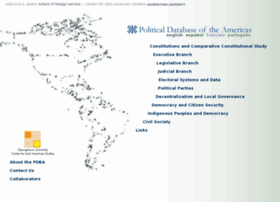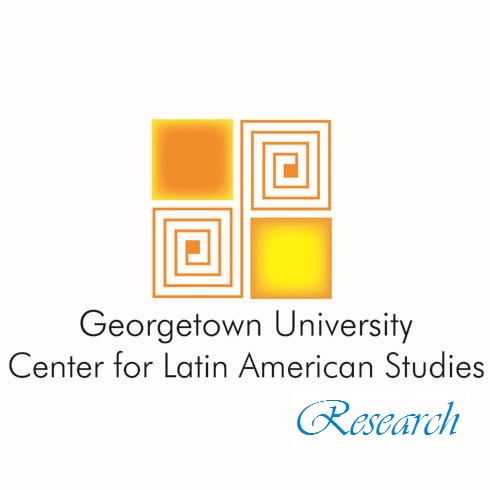POLITICAL DATA BASE OF THE AMERICAS
 History of the PDBA
History of the PDBA
During the eighties, the Center for Latin American Studies (CLAS) at Georgetown University began to receive a number of requests for electoral data and constitutions. This demand intensified with the process of democratization undertaken by most Latin American countries from the late 80s onwar ds. This served as an incentive for the gathering of political information about the democratic processes in the hemisphere and convinced the CLAS director and faculty of the necessity to create a source of systematized, trustworthy and permanent information about the Americas.
In its early years, the project received generous support from the Tinker Foundation and it was developed in collaboration with the Organization of American States (OAS).
The PDBA, through its collaboration with OAS, was connected to the mandates of the Summit of the Americas. In the first Summit in Miami in 1994, the Heads of State and Government recognized democracy as the only acceptable system of government in the hemisphere, and agreed to create a mechanism for the "exchange of democratic experiences" in the region. The PDBA, formally launched in 1995, was one of the means chosen to achieve that goal.
In recognition of the usefulness of the project, its growing number of users and as a means to secure its continuation, the PDBA has received generous contributions from the United States government since 1997. Additionally, other institutions provide support to the project.
After 10 years of work and research, the Political Database of the Americas is a consolidated non-governmental project recognized for its contribution to the dissemination and exchange of political-institutional information for the strengthening of governability and a democratic culture in the region.
CENTER FOR LATIN aMERICAN sTUDIESGeorgetown University484, 4th Floor, Intercultural Center37th and O Street, N.W., Washington D.C. 20057Phone: (202) 687.0140Fax: (202) 687.0141
Connect with us via: